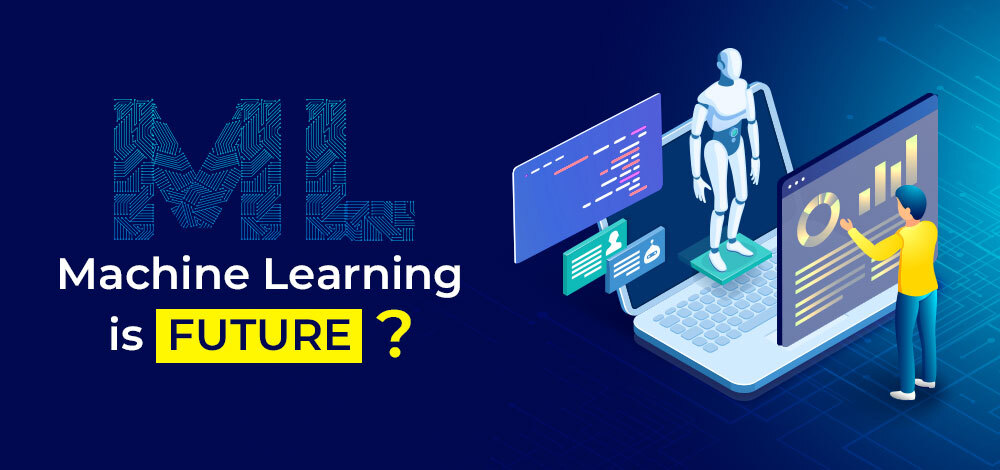Machine Learning and the Future of Work: Emerging Jobs and Career Paths in 2025 and Beyond
Introduction: A New Era of Work
Machine Learning (ML) is no longer a futuristic concept—it’s actively reshaping industries, automating repetitive tasks, and generating new, high-paying job roles. As we move through 2025, understanding the emerging career paths driven by ML is crucial for professionals, students, and business leaders alike.
What is Machine Learning?
Machine Learning is a subset of Artificial Intelligence (AI) that allows computers to learn from data and improve over time without explicit programming. From personalized Netflix recommendations to fraud detection in banking, ML is embedded in daily life—and it’s creating new opportunities across sectors.
How ML is Changing the Job Market
1.
Automation of Repetitive Tasks
Tasks once done manually—such as data entry, image tagging, or report generation—are now automated using ML algorithms. This shift frees humans to focus on creative, strategic work.
2.
Rise of Data-Driven Decision Making
Companies now rely heavily on data scientists and ML engineers to interpret complex datasets and make predictive decisions, from customer behavior to logistics.
Top Emerging ML Jobs in 2025
1.
Machine Learning Engineer
One of the most in-demand tech roles. Engineers design, build, and deploy ML models. Knowledge in Python, TensorFlow, and cloud platforms (AWS, Azure) is essential.
2.
AI Ethicist
With great power comes great responsibility. AI ethicists ensure that ML systems are fair, transparent, and aligned with human values.
3.
Data Scientist
Still a cornerstone of the ML world. These professionals turn raw data into actionable insights using statistical analysis and ML algorithms.
4.
AI Product Manager
Bridges the gap between ML teams and business stakeholders. These roles are crucial for aligning technical development with user needs and market trends.
5.
ML DevOps (MLOps) Engineer
Focuses on the deployment, monitoring, and maintenance of ML models in production, ensuring continuous delivery and scalability.
6.
AI Cybersecurity Specialist
As ML gets adopted in security systems, experts are needed to create models that detect and prevent sophisticated cyber threats.
Industries Hiring ML Experts
-
Healthcare: Predictive diagnostics, personalized treatment.
-
Finance: Risk assessment, fraud detection.
-
Retail: Customer behavior analytics, supply chain optimization.
-
Manufacturing: Predictive maintenance, quality control.
-
Transportation: Self-driving technology, route optimization.
Skills Needed for a Career in Machine Learning
-
Programming Languages: Python, R, Java
-
Mathematics & Statistics: Linear algebra, probability, calculus
-
ML Frameworks: TensorFlow, PyTorch, Scikit-learn
-
Data Handling: SQL, Pandas, NumPy
-
Soft Skills: Problem-solving, communication, ethical reasoning
Preparing for the Future: How to Get Started
-
Enroll in ML courses on platforms like Coursera, edX, or Udacity.
-
Build projects using real datasets (Kaggle, UCI ML Repository).
-
Get certified (Google ML Certification, Microsoft AI Fundamentals).
-
Stay updated with blogs, research papers, and AI conferences.
-
Network via LinkedIn, GitHub, and ML-focused communities.
Conclusion: The Future Is Bright and Intelligent
Machine Learning is not taking away jobs—it’s transforming them. While automation will phase out some roles, it will also create new, exciting opportunities for those prepared to adapt and learn. By staying informed and upskilling now, you’ll be ready to thrive in the AI-powered job market of tomorrow.
Meta Description: Discover how machine learning is transforming the job market. Explore new careers, future trends, and how to prepare for high-demand ML roles in 2025 and beyond.
Tags: Machine Learning, Future of Work, AI Jobs, Emerging Careers, ML Career Path, Artificial Intelligence, Tech Trends 2025, Automation


Comments
Post a Comment